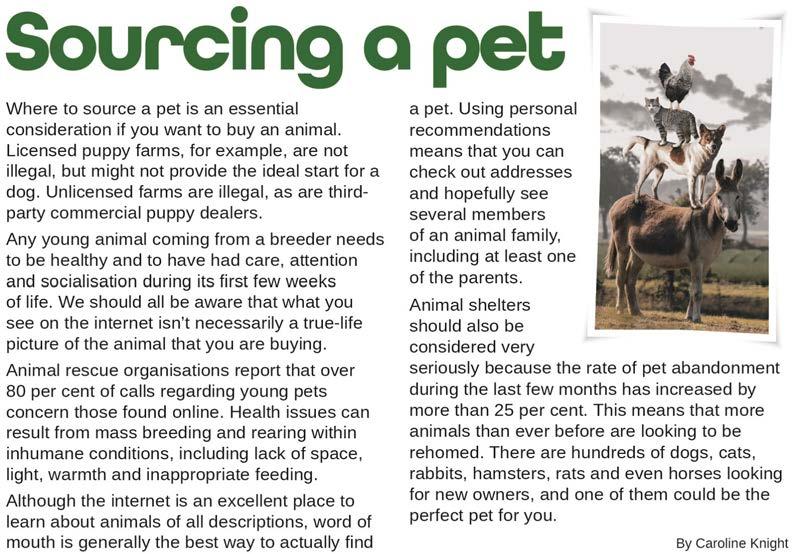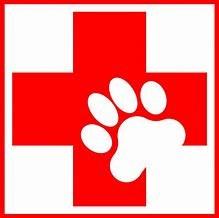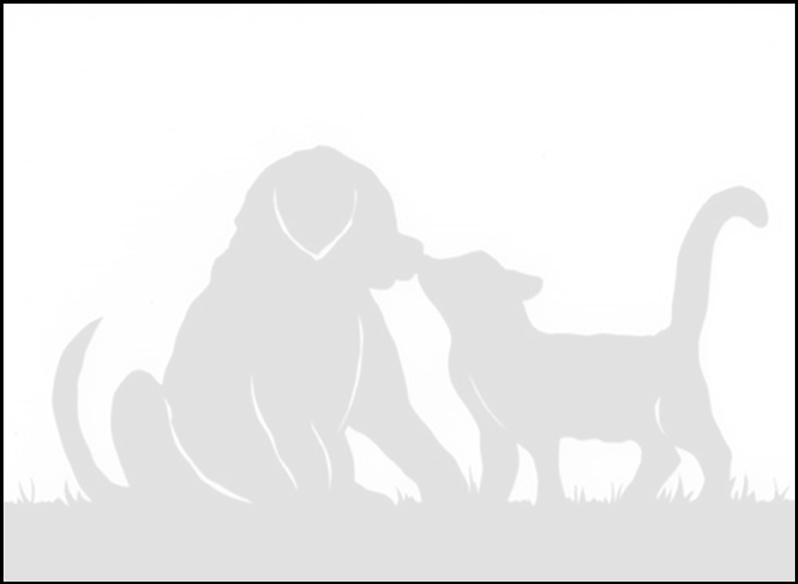
4 minute read
Quiz; Arms & Legs


Advertisement

Do you know how to provide your pet with first aid if an emergency occurs? As April is Pet First Aid Month, here are a few tips to help you prepare for an unexpected issue: Wounds & Lameness

If your pet sustains a wound, wash it with clean running water or sterile saline. If there is a lot of bleeding, apply pressure for at least five minutes with a sterile dressing or a clean cloth, such as a flannel, a towel or even a t-shirt. As soon as you can, call us, as the wound may require stitching or further treatment –especially if the wound is large or contaminated. Dog bites can be much more severe than they initially look. It is important to always seek veterinary attention in these cases. If your pet suddenly becomes lame, carefully check the foot of the affected limb for wounds, thorns, bits of glass, grass seeds or other items that may be irritating. You can usually remove foreign bodies safely, but do be careful, as the animal will most likely be in pain and may behave in an unpredictable manner. If lameness persists call the vet, as the injury may require further investigation and treatment. Animals only limp when they are in pain, so at the very least they will need pain relief.
Road accidents

If you come across an injured pet in the road or yours has been involved in a traffic collision, check you are safe to approach, talking gently to it as you get closer, moving slowly and avoiding making sudden movements. Put a lead on dogs if possible. Even if the animal is able to move and walk, they need veterinary attention – even if there appears to be no pain, as there may be internal injuries. If the animal cannot walk and you can pick them up, place one hand at the front of the chest and the other under the hindquarters. Improvise a stretcher for large dogs with a coat or a blanket. Cover them with a coat or blanket and get them to your vet - call ahead so we can be ready for your arrival.
Burns and scalds
Run cold water over a burn for at least five minutes and then contact us. Do not apply ointments or creams, but if you can’t get to the us right away, apply a saline-soaked dressing to the area. If it is a leg that is affected, wrapping the area in clingfilm is a good idea.
Other Incidents
Stings, Insect bites, snake bites, seizures, collapse, poisoning - the list of situations which might need emergency first aid is extensive. For any situation, just give us a call and our team will be happy to help.
Be prepared
Have the following things ready in your home so you are prepared for any incident: A pet first aid kit - containing bandages, dressings, tape, scissors, cotton wool and gauze as a minimum. We stock first aid kits and can also advise you what to put in your own. Our phone number written down or programmed into your phone. If you are going on holiday research details of a local vet before you travel. A pen and paper – you may wish to note down the vet’s instructions. A clean, large blanket or towel. Try not to panic – an emergency will require you to act fast, keep calm and most importantly, stay safe. It is vital to remember that a sudden illness or injury may cause an animal to be very frightened. In this situation, even tame pets can bite, so you must ensure your own safety. Having a muzzle will allow you to help your dog confidently. Muzzles cause no harm to the animal and reduce the risk of harm to you. If you do not have a muzzle to hand, then a large towel to cover their head can reduce the risk to you and reduce the stress for them. For any help and advice about any issue regarding your pet’s health, give the team a call on
01603 783920.
David Martin BVM&S MRCVS

Helping leaders & sales teams to achieve better results with Training, Coaching & Mentoring. To gain some development ideas for your team, email to arrange a FREE 15-min telephone call or book a £149 60-minute Zoom session...

(Local service provider - 20 years Corporate & SME B2B experience)
T: 07500 877675








